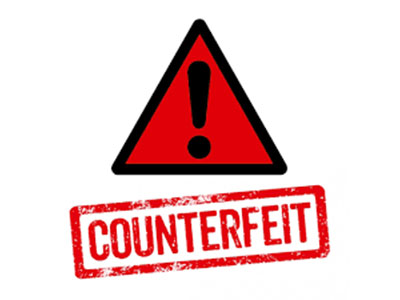
What Do Businesses Need To Do
According to a report published by the International Trademark Association (INTA) and the International Chamber of Commerce, counterfeits are increasing. Also the economic value of counterfeiting and piracy globally is predicted to reach USD 2.3 trillion by 2022.
Anyone who has ever done any travelling, and particularly to the less developed and developing countries, can see first-hand that counterfeiting is a problem for many industries. No industry or country seem to be free from the threat.
This is also true in Indonesia. The Indonesian Anti-Counterfeit Society (MIAP) offers some statistics on the market of counterfeit goods in Indonesia:
- 3.8% drugs,
- 8.5% food and beverages,
- 12.6% cosmetics,
- 33.5% software,
- 37, 2% of leather goods,
- 38.9% clothing
- 49.4% of printer ink)
It was the main cause for a loss of IDR 65.1 trillion in the national economy in 2014.
The United Nations Office on Drugs and Crime (UNODC) and The World Customs Organization estimates that 75% of counterfeit products entering the world market in 2010 were made in East Asia, generally in China. The cheap labour costs and the abundance of illegal workers make China the perfect choice of counterfeit goods producers.
In the past, products were placed on the general market and could be found in retail and traditional markets. However, now we have the digital era there has been a shift in the way sellers operate. Many counterfeit products are distributed through e-commerce and other online sales channels. In Indonesia one of the main e-commerce channels that is notorious for distributing many counterfeit goods is Alibaba.
Last year, the United States Alibaba into its counterfeit goods watch list. Since then, Alibaba has claimed that their business has taken steps to combat counterfeiting in its seller network. One way has been to create a digital ledger system designed to track genuine products through the supply chain.
Counterfeiting Casualties
A consumer is said to be one of the victims of counterfeiting when they are unaware that the goods they buy are fake. The loss however is not confined to money – if the counterfeit goods that were bought are drugs or liquor, then there can also be a health threat (or even a threat to life as has been seen with counterfeit alcohol deaths in India and Indonesia).
There are also consumers who consciously buy counterfeit products as they are happy to get items that resemble the originals for a bargain price. However, many do not think that the counterfeit industry supports the violation of human labour and children’s rights. Dana Thomas, in her book “Deluxe: How Luxury Lost Its Luster” says that she witnessed how a child experiences violence and is forced to work to assemble a fake leather bag.
The list of victims does not however stop there. The original producers and brands are also of course deeply affected. The distribution of counterfeit goods will have a negative impact on the value associated with their brand. The circulation of fake branded products undermines the exclusivity and uniqueness of genuine branded products in the eyes of its consumers. It is little wonder that a worldwide brand such as Louis Vuitton is willing to allocate funds for brand protection efforts for up to € 15 million.
Brand Protection Efforts
It is almost impossible to completely eliminate the industry of counterfeit products and the black market. For manufacturers and brands, designing brand protection programmes is the only way to protect them from counterfeiting.
According to Kim Schneider, Avery Dennison’s Senior Director of Technology Solutions, brand protection is more of a counterfeit prevention effort, involving a multidisciplinary approach including supply chain management and science labelling.
The more elements involved in a brand protection strategy, the more difficult it will be to forge products. Manufacturers and brands can also work with third parties in implementing brand protection programmes in the supply chain. These include inspection and market surveys, trademark investigations, parallel trading investigations, and other related services.
In addition, it is important for manufacturers and brands to find the best way to communicate with their customers about product knowledge and other information related to the authenticity of the brand through its supply chain.
For more information on how IPIA, BEPIA or Business Due Diligence Indonesia can assist you with your brand protection efforts in Indonesia please contact us.
Sources
http://kemenperin.go.id/artikel/9703/Kerugian-Akibat-Peredaran-Barang-Palsu-Capai-Rp-65-T
https://www.cnbc.com/id/38229835
https://www.voanews.com/a/global-trend-in-counterfeiting-and-piracy/3783360.html


Join BEPIA